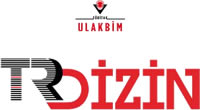Irak’ta Yaşayan Türkmen Ortaokul Öğrencilerinin Millî Kimlik Algılarının Çeşitli Değişkenler Açısından İncelenmesi: Kerkük Örneği
Anahtar Kelimeler:
Millî kimlik algısı- millî kimlik- Türkmen öğrencilerÖzet
Bu araştırma Irak’ta yaşayan Türkmen ortaokul öğrencilerinin millî kimlik algılarını çeşitli değişkenler açısından incelemek amacıyla yapılmıştır. Araştırma tarama modelinde gerçekleştirilmiştir. Araştırmada veri toplama aracı olarak Gelişli (2014) tarafından geliştirilen millî kimlik algısı ölçeği kullanılmıştır. Ölçek millî kimlik ve değerler ile millî kimlik ve din olmak üzere iki faktörden oluşmaktadır. Araştırmanın çalışma grubunu Kerkük (Irak) ilinde ortaokul düzeyinde öğrenim gören toplam 87öğrenci oluşturmaktadır. Verilerin analizi SPSS 22 istatistik programı kullanılarak yapılmıştır. Verilerin analizinde; betimsel istatistik, ilişkisiz örneklemler için t-testi ve ilişkisiz örneklem için tek yönlü varyans analizi (OneWayAnova) teknikleri kullanılmıştır. Araştırma sonucunda Türkmen ortaokul öğrencilerinin millî kimlik algısı ölçeği; millî kimlik ve değerler boyutuna ilişkin görüşleri ortalaması C
=4.21 düzeyinde yüksek bir değer olduğu belirlenmiştir. Yine öğrencilerin millî kimlik ve din boyutuna ilişkin
görüşlerinin ortalaması C =4.27 düzeyinde oldukça yüksek olduğu belirlenmiştir. Araştırmaya katılan Türkmen ortaokul öğrencilerinin millî kimlik ve değerler ile millî kimlik ve din algısı alt boyutlarına ilişkin görüşleri; cinsiyet değişkeninde kız öğrenciler lehine anlamlı farklılık göstermektedir. Buna karşılık sınıf, aile gelir durumu, anne eğitimi ve baba eğitimi değişkenlerine göre benzer bulunmuştur. Bu bulgulara göre, sınıf düzeyine göre öğrencilerin millî kimlik algısının benzer bulunması sosyal bilgiler derslerinde verilen değer eğitiminin öğrencilerin millî kimlik algılarında yeterince farklılaşma oluşturmadığı sonucuna ulaşılabilir. Bu sonuca göre, özellikle anadilde Türkçe eğitim gören Türkmen öğrencilere verilen sosyal bilgiler programındaki kazanım ve değerlerin öğrencilerin millî kimlik algısını sınıf düzeyi ilerledikçe geliştirecek şekilde organize edilerek verilmesi gerektiği önerilmektedir.
Referanslar
Aksoy, B. (2003). Milli Kimliğin Kazanılmasında Coğrafyanın Önemi, Türk Yurdu Dergisi,
(194).
Bilgin, N. (2007).Kimlik İnşası. İzmir: Aşina Kitaplar.
Bostancı, N. (2003). Etnisite, Modernizm ve Milliyetçilik. Türkiye Günlüğü, 75, 5-32. Büyüköztürk, Ş., Kılıç E., Akgün, Ö. E., Karadeniz, Ş. & Demirel, F. (2012). Bilimsel Araştırma Yöntemleri. Ankara: Pegem Akademi.
Calhoun, C (1994). Social Theory And The Politics Of Identity, Blackwell publishing, Oxford.
Creswell, W. J. (2014). Araştırma deseni nitel, nicel ve karma yöntem yaklaşımları. (S.B.Demir ve M. Bursal. Çev.) içinde (s. 155-182). Ankara: Eğiten Kitap.
Çalık, M. ( 2016). Millik Kimlik Milliyet Milliyetçilik. Ankara: Cedit Neşriyat.
Duman, B. (2016). IŞİD Sonrası Türkmenler ve Türkmen Bölgelerinin Durumu, ORSAM Rapor No: 203, Ağustos.
Erbaş, S. (2018). Sosyal Bilgiler Eğitimi Lisans Öğrencilerinin Millî Kimlik Algılarının İncelenmesi. Yayınlanmamış Yüksek Lisans Tezi. Gazi Üniversitesi Eğitim Bilimleri Enstitüsü. Ankara.
Giddens, A. (2008). Sosyoloji. İstanbul: Kırmızı Yayınları.
Güvenç, B. (1994). Türk Kimliği: Kültür Tarihinin Kaynakları. T.C. Kültür. Bakanlığı milli kütüphane basımevi, 2.Baskı.
Irmak, C., Bilginer, R., Çetin, T. (2018). Iraklı Türkmen Öğrencilerin Göç Kavramına Yönelik Düşünceleri. Anadolu Kültürel Araştırmaları Dergisi, 2(3), 87-101.
Karasar, N. (2014). Bilimsel Araştırma Yöntemi. Ankara: Nobel.
Kafa, S. (2010). İlköğretim 8. Sınıf Öğrencilerinde Milli Kimlik Bilinci Geliştirmeye Yönelik Etkinliklerin Okul Başarısına Etkisi. Yüksek Lisans Tezi, Gazi Üniversitesi Eğitim Bilimleri Enstitüsü. Ankara.
MEB, (2018). Sosyal bilgiler dersi öğretim programı ve kılavuzu. Ankara: Devlet Kitapları Müdürlüğü.
Milli kimlik (t.y.). Türk Dil Kurumu içinde
.http://www.tdk.gov.tr/index.php?option=combts&arama=kelime&guid=TDK.GTS.5ae 2bf9d7b63a0.07601553 sayfasından erişilmiştir.
Millet (t.y.). Türk Dil Kurumu içinde http://www.tdk.gov.tr/index.php?option=com_gts&arama=gts&guid=TDK.GTS.5caa5c 61d9c5b2.18295080sayfasından erişilmiştir.
Okur, M. (2013). Liselerde Coğrafya Eğitiminin Milli Kimlik Bilincine Etkisinin Öğrenci Görüşlerine Göre Değerlendirilmesi. Yüksek Lisans Tezi. Gazi Üniversitesi Eğitim Bilimleri Enstitüsü. Ankara.
Övet, T. (2007). Avrupa Öteki’si, Stratejik Öngörü, 11, 94-103.
Sökefeld, M. (2001). Reconsidering Identity, Anthropos, 69, 527-544. Smith, D, A. (2016). Millî Kimlik. (Çev., B. S. Şener,). İstanbul: İletişim.
Türkbağ, A.U. (2003). Kimlik, Hukuk ve Adalet Sorunu. Doğu Batı, 6(23), 209-216. Vatandaş, C. (2004). Ulusal Kimlik; Türk Ulusçuluğunun Doğuşu. İstanbul: Açılım.
Yücel, H. (2009). Psikanalitik Bir Perspektifin Milliyetçiliği Anlamaya Yönelik İmkânları.
Eleştirel Psikoloji Bülteni, 2, 32-47.
Weeks, J., Rutherford, J., vd.,(1998). Kimlik: Topluluk/ Kültür/Farklılık. İstanbul: Sarmal Yayınları.
Yayınlanmış
Nasıl Atıf Yapılır
Sayı
Bölüm
Lisans
Telif Hakkı (c) 2023 Anadolu Kültürel Araştırmalar Dergisi (ANKAD)

Bu çalışma Creative Commons Attribution-NonCommercial 4.0 International License ile lisanslanmıştır.













